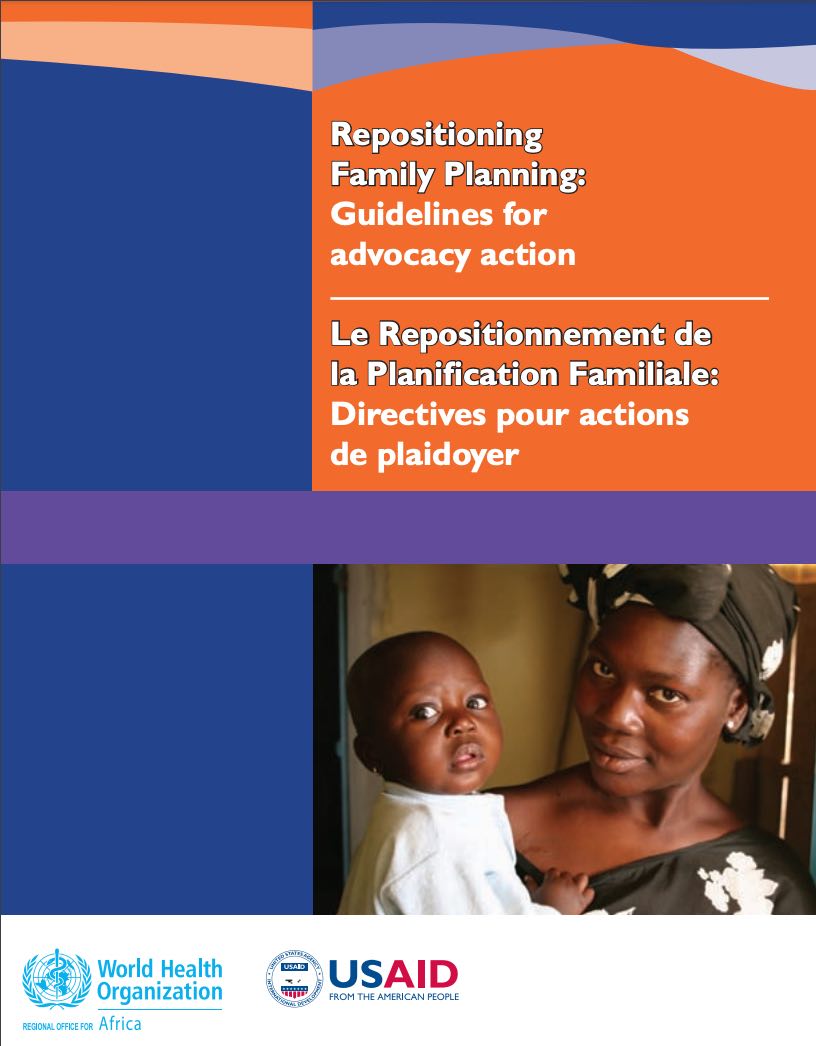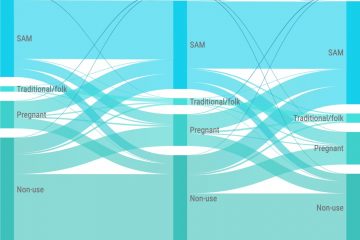
Repositioning Family Planning: Guidelines for Advocacy Action
Other Languages and Materials
(December 2008) Countries throughout Africa are engaged in an important initiative to reposition family planning as a priority on their national and local agendas. Provision of family planning services in Africa is hindered by poverty, poor access to services and commodities, conflicts, poor coordination of the programmes, and dwindling donor funding. Although family planning enhances efforts to improve health and accelerate development, shifting international priorities, health sector reform, the HIV/AIDS crisis, and other factors have affected its importance in recent years. Traditional beliefs favouring high fertility, religious barriers, and lack of male involvement have weakened family planning interventions. The combination of these factors has led to low contraceptive use, high fertility rates in many countries, and high unmet needs for family planning throughout the region. Family planning advocates must take action to change this situation.
Family planning, considered an essential component of primary health care and reproductive health, plays a major role in reducing maternal and newborn morbidity and mortality and transmission of HIV. It contributes to the achievement of the Millennium Development Goals and the targets of the Health-for-All Policy for the 21st century in the Africa Region: Agenda 2020. In recognition of its importance, the World Health Organisation Regional Office for Africa developed a framework (2005−2014) for accelerated action to reposition family planning on national agendas and in reproductive health services, which was adopted by African ministers of health in 2004. The framework calls for increase in efforts to advocate for recognition of “the pivotal role of family planning” in achieving health and development objectives at all levels.
This toolkit aims to help those working in family planning across Africa to effectively advocate for renewed emphasis on family planning to enhance the visibility, availability, and quality of family planning services for increased contraceptive use and healthy timing and spacing of births, and ultimately, improved quality of life across the region. It was developed in response to requests from several countries to assist them in accelerating their family planning advocacy efforts.
This toolkit was jointly produced by the World Health Organisation, Regional Office for Africa, and the United States Agency for International Development through the BRIDGE Project, implemented by PRB, and Africa’s Health in 2010 Project, managed by the Academy for Educational Development.

 ">
">


